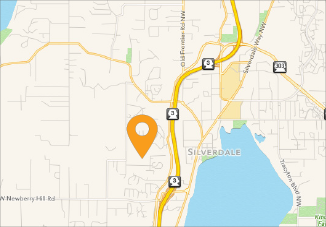Found Kittens? What You Should (and Should Not!) Do
April 3, 2015
Our recent warm winter and early spring means a long and fertile kitten season is on its way. During kitten season, it is common to find a nest of unattended kittens that seem to have been abandoned by their mother. When people make these discoveries, the first impulse is to scoop up the kittens to “rescue” them; but that is not always the best thing to do. Here are a few tips about what to do to help any kittens you may find.
- Most important: Wait and watch! Before even getting close to the kittens, wait from a distance of 35 feet or more to watch for the mother to return. It is not unusual for a mother cat to leave her litter alone – sometimes for hours – while she is out finding food or looking for a better location to nest. If you disturb the nest, touch the babies (thus getting your scent on them), or are too close, you may scare the mother off for good. Be patient. It may be several hours before she returns, especially if she senses the presence of humans near the nest. If it has been a few hours, you may want to put on sterile gloves and check a couple of kittens to see if they have full bellies. If they do, and they are not newborns, give it a while longer.
- If mother is there, leave them alone or trap them all together. It is by far healthiest for kittens to remain with and be nursed by their mother. Mother’s milk is necessary for kittens to develop immunities to common feline illnesses, so Mama offers them the best chance for survival. If you believe you can capture both mother and kittens together, do so and bring them to the Kitsap Humane Society for vet care and placement in a foster home. If this is too difficult, leave the kittens with Mama. When the kittens are old enough to venture out of the nest, occasionally pick them up, pet and play with them to help them become used to humans, so they will become adoptable instead of feral.
- Offer shelter and food. The biggest danger to very young kittens is hypothermia. Another danger is neighborhood kids or animals that may disturb the nest. If you provide a safe, warm, secluded shelter with straw in it for bedding (better than blankets), the mother cat may move her litter into the shelter. Offer the mother food, also – a food specifically for kittens is best as it provides extra nutrients the kittens will get through her milk. Place the food far from the shelter, as Mama won’t want a nearby food source to attract other animals to the nesting spot.
- Take advantage of a Litter Abatement program. As soon as the kittens are weaned (for most kittens, between 4 and 6 weeks), you can safely collect mother and kittens (attempt to trap them together if possible), and bring them to the Kitsap Humane Society for our free Litter Abatement program. The kittens will be socialized, vaccinated, microchipped, and adopted out to loving indoor homes, and the mother will receive a free spay surgery. Don’t put it off! By 8 or 9 weeks of age, kittens born outdoors can become so feral that they may be difficult to socialize as pets. Also, the mother cat can become pregnant again immediately, so getting her spayed as soon as possible is important. Depending on whether or not the mother is feral, you may need to use a humane trap to capture her.
- What if there is no mother? If it appears that the mother is not going to return, you should move the kittens to a dry, enclosed spot, and keep them warm (wrap a towel around a heating pad set to the lowest temperature). Kittens must also have some space to get away from the warmth so they don’t overheat. Then, bring them to the Humane Society as soon as possible for veterinarian services and placement in a foster home. Kittens younger than four weeks require special round-the-clock care. They cannot eat any kind of solid food (canned or dry), and will require bottle feeding every few hours with a kitten milk replacement formula (no cow’s milk). Depending on age, they may also need to be stimulated to eliminate waste after every feeding. Caring for the kittens yourself can be an overwhelming commitment, and if not done correctly, can result in fatality for the kittens. If the right steps are taken to care for homeless kittens and their mothers, the end result is happy cats in loving homes, and a lower feral cat population in our community. Thank you for caring for our community cats!



